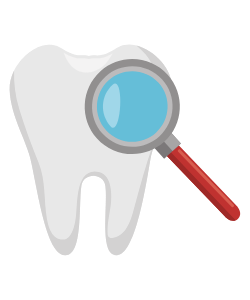You just don't visit your dentist when you have a dental emergency (when you've suffered an injury to your mouth that leads to bleeding, loss of teeth or cracked teeth), you are in severe pain, your cheek or face is swollen as a result of a tooth, etc. The following article includes the different times you should visit your dentist:
Child's First Dental Visit
As soon as your baby's teeth are out, take her or him to a pediatric dentist. This is important because you want the dentist to check whether the teeth are coming in correctly and healthily. The dentist can also check whether there might be any underlying dental conditions; you're better safe than sorry.
Your dentist will also come up with a schedule for your child (dentist visits serve to monitor the growth of your child's teeth). You should also know that there are dental conditions that are better treated when caught early. Visiting a pediatric dentist makes catching such conditions possible.
A Cavity (However Small It is)
If you notice you have a cavity, however small it is, don't wait! Visit your dentist as soon as you can. The dentist will be able to use less extensive treatment methods compared to when you wait and the cavity becomes big. A large cavity is treated through a process called a root canal. It involves the removal of blood vessels and nerves in the pulp cavity and filling the space with a compound known as filling. Don't let your cavity reach the extent of requiring a root canal procedure.
Toothache and Gum Bleeding
A toothache is usually a sign of a cavity. Cavities have been explained above. Gum bleeds can be caused by an injury or a dental condition. If the bleeding is not severe, don't take it lightly; visit your dentist so that he or she may check whether you have a condition that is in its early stages.
Tooth Sensitivity
If you have sensitive teeth, visit the dentist to find out why. You might have cavities or your teeth might just be sensitive and need a special kind of toothpaste.
Mouthguard Fitting
If you need to have an accurately fitting mouthguard, visit your dentist to have a custom one made. The dentist usually takes a mould of your teeth and prepares a mouthguard that is in the shape of your teeth. The main benefit of a mouthguard made by a dentist is that your speech is not altered and it does not fall out easily. Speech is important if you are playing a sport that requires you to communicate with other players.
Share
